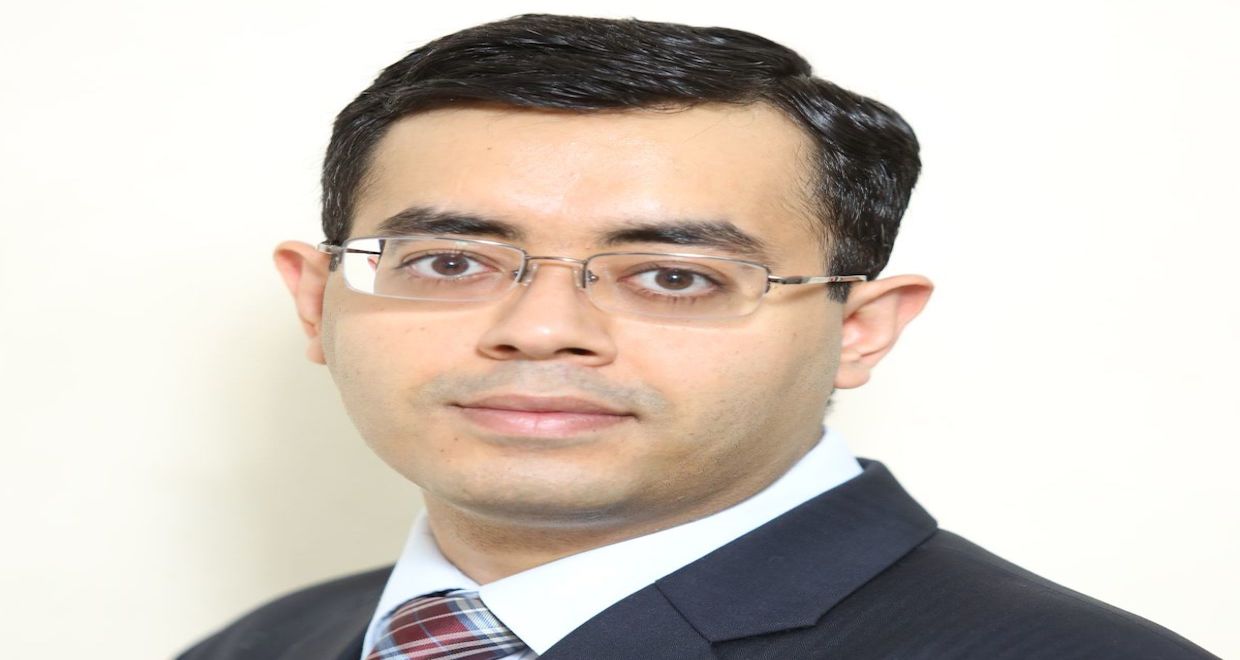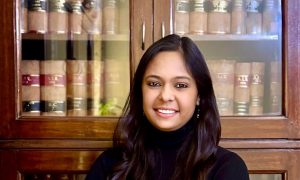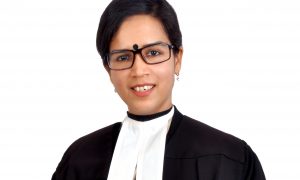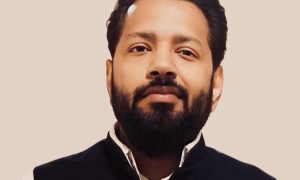Debanshu Khettry is a fourth-generation lawyer at Leslie & Khettry. He focusses on corporate law, commercial contracts, corporate finance and banking law, securities law, property law, and legal due diligence.
Debanshu has catered to international clients looking to do business or having business in India through his association with a reputed and one of the best law firms in New Delhi. He has assisted in negotiation and documentation of various inbound investments in India. He has experience in legal due diligence of businesses in various sectors including infrastructure, e-commerce, FMCG, biotechnology, and education. In addition, he regularly advises corporates, sporting bodies, and individuals on issues relating to commercial law and property law.
He attained LLM with distinction from University College London and graduated from National University of Juridical Sciences, Kolkata (gold medallist).
He gained wide experience through over a dozen internships in some of the biggest law firms in India; judges of Hon’ble Supreme Court of India and Hon’ble Delhi High Court; eminent lawyers and Members of Parliament; office of additional solicitor general and NGOs. His contribution in all these places was highly appreciated.
Debanshu co-founded P-PIL, with Dr. (Prof.) Shamnad Basheer, to promote practical advocacy among law students. His extensive empirical research on the constitutionality of a statutory tribunal in India was endorsed by a former High Court Judge. He is a founding member of IDIA (established to promote diversity in law schools by training the deprived) where his co-authored policy paper was accepted by the CLAT Committee. His other initiatives include being the founding executive editor of Journal of Telecommunication and Broadcasting Law (first of its kind refereed journal); co-founder of SILC (India’s first standard legal citation system); and co-founder of Lawctopus (a leading website for law students).
His articles have been published in refereed international journals and his research has been cited in various books and articles. He also takes a keen interest in developments in the financial markets.
In this interview, we speak to him about:
- Importance of LLM
- Tips on writing SOPs and advice on application requirements
- Challenges faced in starting his own venture
- Roles and responsibilities as principal associate at Leslie & Khettry.
GIVEN THAT MOST OF OUR READERS ARE LAW STUDENTS AND YOUNG LAWYERS, HOW WILL YOU INTRODUCE YOURSELF TO THEM?
I am a fourth-generation lawyer at my family’s legacy firm, Leslie & Khettry. I graduated from National University of Juridical Sciences (NUJS) in 2013 and then pursued LLM from University College London (UCL).
TELL US ABOUT YOUR OPTIONS AFTER GRADUATING FROM SCHOOL. DIDN’T YOU THINK OF THE CONVENTIONAL DEGREES IN ENGINEERING AND MEDICINE?
Any other field of study was never in my mind. Since my forefathers have been lawyers, the legal profession has always been in my blood. I took CLAT tuitions from the eleventh grade and managed to get an all India rank of about 100. My backup plan was to pursue BCom (Hons) from St. Xavier’s College, Kolkata where I gained admission and then do a three year law course in case I did not get into any of the top law schools in India which have a five year integrated law program.
WHAT CO-CURRICULAR ACTIVITIES DID YOU PARTAKE IN NUJS?
I was not much into the traditional co-curricular activities in law school such as debate or mooting (except for the compulsory ones). Instead, I was involved in entrepreneurship and practical lawyering.
Under the aegis of Prof. (Dr.) Shamnad Basheer, I got an excellent opportunity to work for P-PIL (Promoting Public Interest Lawyering) where we provided law students an opportunity to get hands-on experience of practical lawyering. We worked on issues ranging from human rights, education to regulatory lapses.
Under the able guidance of Prof. (Dr.) Basheer, I also got the opportunity to work in the policy arm of IDIA (Increasing Diversity by Increasing Access) that aims to empower underprivileged children by providing them access to legal education. Pursuant to the policy paper that we submitted to the CLAT Committee, various changes were made in relation to the conduct of the CLAT exam.
I also started the first of its kind international peer-reviewed Journal of Telecommunication and Broadcasting Law (JTBL) for NUJS. Whilst in college, I ran the journal for two years and we were able to get Lexis Nexis as the publisher.
Along with another friend, we also conceptualised India’s first legal citation system, the Standard Indian Legal Citation (SILC). Unfortunately, most law schools and journals in India follow legal citation systems that are not indigenously developed and are not comprehensive guides for citing Indian legal sources. The freely available SILC solves that problem.
Then of course, I also spent time in planning and developing Lawctopus (an online portal dedicated to law students) along with the other co-founders. I feel proud that five students from NUJS were able to produce a website that has helped a large number of students in myriad ways.
In addition, I worked as a researcher for a global LPO during my spare time. I also tried making NUJS a more prominent institution in the legal industry. For instance, a friend and I were able to convince the Vice-Chancellor in our second year to change the academic calendar of the University to allow for students to do 3 internships in a year which required in-depth study and galvanising great amount of support from the student body and faculty.
AS A LAW STUDENT, YOU CONSISTENTLY EXCELLED IN ACADEMICS AND BAGGED GOLD MEDAL IN YOUR BA LLB (HONS) COURSE FROM NUJS. WHAT IS THE MOST IMPORTANT TIP THAT YOU WOULD LIKE TO SHARE WITH LAW STUDENTS FOR CONSISTENTLY EXCELLING IN ACADEMICS?
Discipline, focus and determination are some of the keys to excel in academics. Achieving good grades or being a rank-holder is an important byproduct that helps in numerous ways such as opening several avenues in your career. However, it is not the only means and what matters most is the knowledge that you gain and how you use it.
YOU SUCCESSFULLY COMPLETED ABOUT TWELVE INTERNSHIPS IN YOUR 5 YEARS OF LAW SCHOOL. PLEASE TELL US HOW FAR DID YOUR INTERNSHIPS HELP YOU IN YOUR CAREER AFTER YOUR GRADUATION? HOW WOULD YOU RECOMMEND THE PRESENT LAW STUDENTS PLAN THEIR INTERNSHIPS?
I tried to gain wide experience through internships and accordingly interned at a mix of places such as some of the biggest corporate law firms in India, judges of Hon’ble Supreme Court of India and Hon’ble Delhi High Court, eminent lawyers such as Ram Jethmalani, the office of additional solicitor general of India and NGOs amongst others. The variety of places meant doing different kinds of work which helped me get a flavour of the innumerable areas of law and the kind of work that I enjoyed doing. This immensely aided in shaping my career path.
To law students, I would suggest to try and do as many internships as possible. It will not only help in gaining practical experience but also an understanding of their likes and dislikes. Since the capacity in many places is limited, I would recommend that they plan the internship at the place of their choice well in advance.
PLEASE TELL US ABOUT YOUR DECISION TO PURSUE AN LLM AT UCL. PLEASE SHARE SOME ADVICE ON ACING THE APPLICATION REQUIREMENTS AND PROCEDURE FOR UCL? DID YOU RECEIVE ANY SCHOLARSHIP OR WHETHER UCL PROVIDE STUDENTS WITH SCHOLARSHIPS?
Much to my surprise, the partners at various law firms that I interned at, did not agree with the concept of LLM or higher education. According to them, it is a waste of time, money and does not yield any benefit in relation to practice in India where the environment and laws are different. However, my cousin who lives in the UK convinced me of the benefits of a post-graduation degree from the UK such as an opportunity to be part of a global network, acquiring a deeper understanding of the law, better educational qualification, etc.
As far as the application process goes, I received enormous help from my friends, family, well-wishers and professors. UCL does provide scholarships to students, however, I did not apply for it.
To fellow applicants, I would advise that they seek guidance from someone who has been through the process with success rather than taking half-baked ideas of those who have never been through the application process. I would also recommend that they spend a great amount of time in preparing their applications meticulously and not work on them in haste.
YOU HAVE BEEN THE FOUNDER/COFOUNDER OF VARIOUS VENTURES INCLUDING THE LAWCTOPUS, P-PIL, JTBL AND SILC. WHAT INSPIRES YOU TO TAKE UP THESE NEW VENTURES?
Each venture is the result of efforts of several others and a gap in the industry that needed to be filled. When we started Lawctopus, there was no website that offered information on the various opportunities available to students or an insight into how their internship experiences at various places have been. The portal helps law students and aspirants make informed choices.
Similarly, for P-PIL, we wanted to create a platform from where students can get an experience of practical advocacy which unfortunately is not fully achieved with the current system of mooting in law schools.
JTBL was the result of lack of any journals devoted to the ever-growing, vital and complex field of telecommunication and broadcasting laws. SILC was also conceptualised due to the absence of any indigenous citation methodology designed to cater to the reference of Indian legal sources.
One of the major inspirations behind these ventures was Mahatma Gandhi’s oft-quoted phrase ‘Be the change you want to see in the world’. It is easy to remark that there is a problem or there is a lack of a better solution, nevertheless, each problem or the lack of a better solution is an opportunity that can be seized.
WHICH SUBJECTS DID YOU TAKE IN YOUR LLM AND WHY?
I have an enormous interest in finance and the financial markets. This led me to take subjects related to this field (such as regulation of financial markets, corporate finance and corporate governance) during my LLM. I also undertook a thought-provoking subject that focussed (amongst others) on the extraneous factors that influence a judge’s decision-making. Even during my law practice, I give a great deal of emphasis on the psychology of judges and analysing their orders and judgments before advising clients.
PLEASE TELL US THE CHALLENGES YOU FACED IN STARTING YOUR OWN VENTURES?
One of the biggest challenges has been to manage the teams and making sure they are performing their responsibilities in a timely manner. In addition, achieving consensus amongst other co-founders becomes challenging at times since they have their own ideas and vision about the venture.
YOU WORK AS A PRINCIPAL ASSOCIATE AT LESLIE & KHETTRY. WHAT ARE YOUR MAIN TASKS AND WHAT ARE YOUR ROLES AND RESPONSIBILITY?
Historically, Leslie & Khettry has been based out of Kolkata even though we regularly came to New Delhi for practice. Recently, though, we opened our office in New Delhi also which I am currently managing. My main responsibility is to grow our practice in New Delhi and cater to the needs of those requiring legal assistance in New Delhi.
WHAT OTHER ACTIVITIES ARE YOU INVOLVED IN BESIDE PRACTICING LAW?
I devote some amount of time in doing angel investments and meeting entrepreneurs and understanding their needs. I also enjoy engaging in new activities, be it learning a new language or an instrument or taking up a sport.
WHAT WOULD BE YOUR PARTING MESSAGE TO OUR READERS?
Always be humble, logical and open to new ideas. Law changes its shape on a regular basis and therefore one must be flexible to adapt to the ever-growing field. I have noticed that professionals often casually call themselves an expert on a subject but there is a reason why lawyers are called practitioners. Also remember, the client is king and therefore their requirements and service to them should take top priority. One must also be ready to toil no what part of the career they are at in order to survive and excel. It is therefore imperative that you enjoy the journey. In spite of best efforts, mistakes may happen but what is important is how you overcome and handle them. There is always scope for improvement in whatever one does.


























